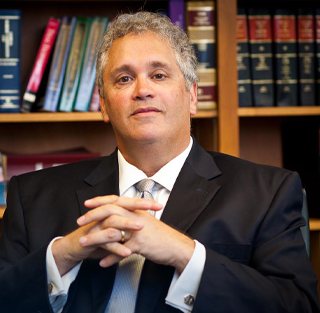Getting Justice For Wrongful Death Due to Negligence
The sudden death of someone you love is devastating no matter the cause. When you suspect or know the loss was the result of another’s careless, reckless or criminal actions, you want both answers and accountability.
Wrongful death in Georgia civil lawsuits must meet very specific criteria, which is why consulting with a knowledgeable and experienced wrongful death attorney is of paramount importance. The fact that someone dies tragically or unexpectedly isn’t necessarily sufficient grounds to file a claim. That the loss was personal to you doesn’t automatically grant proper legal standing to seek damages according to state wrongful death statutes, as outlined in O.C.G.A. § 51-4-1 – O.C.G.A. § 51-4-5.
The most common cause of action in Georgia wrongful death lawsuits is negligence, which is the same standard used in almost all Atlanta personal injury claims (the primary difference being the result was death rather than injury). Georgia has very clear statutes indicating specific rules about wrongful death, and a few of those are critical to understand for anyone considering such a claim.
Legal Grounds for Georgia Wrongful Death Claims
Wrongful death can be the result of many different types of events but are broadly understood to mean a death caused by the negligent, reckless or intentional acts of another person or entity (business, government agency, hospital, etc.).
Establishing Negligence In Wrongful Death Claims
Negligence is established by proving a defendant failed to use reasonable care when there was a duty to do so and this failure resulted in harm to another person. Not all wrongful death claims are rooted in negligence, but most are.
Proving negligence requires establishing the following:
- Defendant owed decedent a duty of care;
- Defendant breached that duty;
- The breach of duty caused the incident that resulted in plaintiff’s harm.
Common Types of Georgia Wrongful Death Negligence Claims
Examples of circumstances from which a wrongful death civil lawsuit might arise include:
- Auto accidents (including commercial truck accidents, bicycle accidents, pedestrian accidents, drunk driving crashes and boating accidents);
- Premises liability (slip-and-fall injury, negligent security leading to criminal attack, dangerous condition on property);
- Product liability (dangerous or defective consumer product);
- Work-related accident.
A single incident resulting in the wrongful death of one person can be grounds for civil litigation against multiple negligent or vicariously liable defendants. For example, if a commercial truck driver causes a fatal crash while sleep-deprived in violation of federal hours of service rules, decedent’s survivors and/ or estate may file claims not only against the driver, but the driver’s employer and the owners of the tractor and trailer as well.
A primary defense in negligence wrongful death claims is that per O.C.G.A. § 51-12-33(g), Georgia doesn’t allow recovery of damages if a jury finds decedent more than 50 percent responsible for his or her own death. For a finding of comparative negligence of any less than that, damages will be proportionately reduced, but barred altogether.
Differing Burdens of Proof Required In Wrongful Death Cases
Wrongful Deaths In A No-Fault Basis
Certain civil claims, such as workers’ compensation death benefits, don’t require proof of negligence because they are provided on a no-fault basis. That means long as it’s established the worker’s death occurred in the course and scope of employment, benefits should be paid.
Higher Burdens of Proof In Medical Malpractice Cases
In other cases, such as medical malpractice, the proof burden is higher than for general negligence. Claimants must prove the health care provider failed to meet accepted professional standards for his or her practice area, facility type and geographic region. This requires expert witness testimony – something occasionally used but not mandated in other types of negligence cases.
Intentional Crimes & Third-Party Lawsuits
Occasionally, wrongful death lawsuits are filed after death caused by intentional wrongdoing, such as a violent criminal attack or aggravated assault. The main problem with this type of claim is insurers generally won’t cover damages for intentional criminal acts by an insured and most defendants aren’t independently wealthy enough to pay out of their own pockets. Therefore, most wrongful death claims stemming from intentional torts are generally pursued instead as negligence actions against third parties (property owners, school officials, employers, bars, etc.) that failed to protect decedent from foreseeable harm despite a duty to do. Alternatively, defendants may be vicariously liable for the attacker’s conduct, meaning third-party defendant wasn’t directly negligent, but can still be held responsible for an employee/ driver/ patron’s tortious conduct.
Work With a Georgia Wrongful Death Lawyer to Establish Fault
In general, you can expect that to prove liability in a Georgia wrongful death case, you will need to establish “fault.” Formulating an effective strategy to prove this will necessitate the assistance of an experienced wrongful death attorney.
Recognize also that the window of time to bring such a claim may be limited and evidence and witnesses can disappear quickly, so it’s best to reach out to a wrongful death lawyer as soon as possible if you’re considering pursuing damages.
The foregoing answers are not legal advice and are merely a general overview. You are advised to consult a lawyer to address your specific situation regarding your situation. For more information or to inquire about a free consultation, contact Stephen D. Apolinsky, an experienced Atlanta wrongful death attorney, at Apolinsky & Associates at (404) 377-9191 or email him at steve@aa-legal.com.



